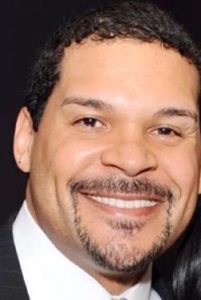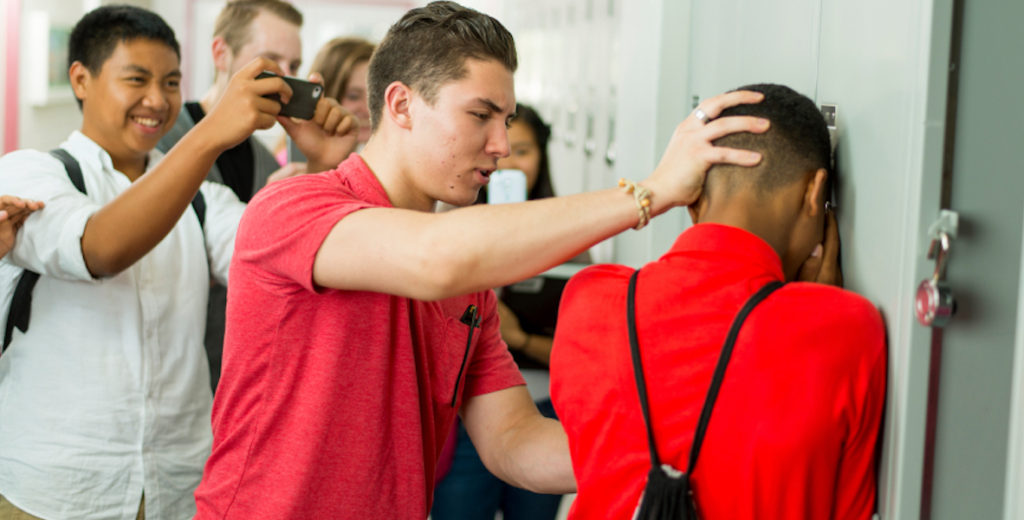Philadelphia and the Denver suburb of Aurora, CO might be over 1,700 miles apart, but there are some distressing similarities in the way they’re both treating the ugly social trend of bullying.

In Aurora, 10-year old Ashawnty Davis died from complications of an attempted suicide two-weeks earlier, the terrifying result of overwhelming stress due to constant harassment and violent bullying at school. Her mother discovered her hanging in a closet at home and the reasons unraveled from there: a 5th-grader struggling to cope with a relentless barrage of harassment at school and then the snapping moment when her resistance against a bully was recorded and cruelly shared on Musical.ly. When the taunts of classroom peers wouldn’t stop, Ashawnty simply gave up.
Head back east, and there is very little difference between the flat, clinical and compassionate-less way the the Aurora school district reacted and how the Philadelphia School District itself treats bullying. The city and district don’t care about the widespread bullying problem in its schools; it never has and it shows very little stomach to address it in any concerted way. That’s worrisome at a time when the city eagerly dives back in to local control of the $3 billion system while struggling with a resurgence in violent crime and homicides.
Not only can’t you take back such a massive and expensive district from the state and not present any creative ideas to pay for it, but you can’t take it back and not know how you’re going to address and eliminate violence in its classrooms, hallways and school yards. And you can’t, as city officials, consider yourself having any serious discussion about violence in the city if you’re not having one about bullying in the schools.
Nothing of this sort is happening on any major policymaking level in Philly.While discussing bullying and harassment in the Philadelphia school system during a recent episode of Reality Check, Education Law Center (ELC) attorney Alex Dutton described the helplessness special needs and disabled students face when victimized incessantly by other students—yet are unable to rely on any protection from teachers or school administrators. “In some of these cases, students were pleading with their parents, begging their parents not to let them go back to school,” says Dutton. ![]()
The complaint—on behalf of one child and three others in similar situations—says the student was kicked, punched, pushed, and had a chair thrown at him; he was repeatedly called derogatory names like “retard” and “dumbass;” he was threatened with far worse violence for speaking up. The complaint says his parents told school administrators, attempted to speak with district supervisors—including Superintendent Bill Hite—and filed a report through the district’s Office of Climate and Safety.
But the district did not, the ELC says, investigate in any meaningful way. As a result the student stopped going to school. Meanwhile, even as parents were telling administrators what was happening, even when they kept their children away from schools out of fear for their safety, the district responded by prosecuting the student and others like him in Truancy Court. The complaint hopes to reverse those truancy findings, and to instill better training and reforms to the school district’s system for dealing with harassment and bullying.
You can’t, as city officials, consider yourself having any serious discussion about violence in the city if you’re not having one about bullying in the schools.
In a move some would find unusual for an Office of Civil Rights within a Trump administration Education Department, OCR lawyers this month announced an investigation into the school district’s bullying practices. District spokesman Lee Whack told The Notebook that the district takes bullying seriously and “looks forward to cooperating with OCR” on this issue. What the complaint makes clear is that Philadelphia, while taking back its
It’s unclear if teachers and administrators are showing the kind of diligence and care needed towards victimized students, and there’s no sense an indifferent truancy response system is considering bullying as a factor in the absence of many students. We just don’t know because, annoyingly, the city and the district refuse to formally assess the situation or provide any data on it. Dutton tried to give the PSD some benefit of the doubt, pointing to a “good first step” in creating a section within its website dedicated to information on bullying. That was done not too long after the ELC filed its complaint in July and it’s about as far as it goes. But, there’s no sense of urgency other than quick, insincere lines about how the district takes reports of bullying “seriously” when, if it did, it wouldn’t have taken families to Truancy Court.
And if it really took district-wide bullying seriously, administrators would be offering actual data on the problem. There’s none of that on the PSD website, no grasp or any attempt at a grasp of how bad this problem is. Just template copy on how the district purports to address bullying and blank forms you can fill out if you’re an at-wit’s-end and scared parent struggling to protect her kid from the violence of others. Charles D. Ellison is Executive Producer and Host of “Reality Check,” which airs Monday–Thursday, 4-7 p.m. on WURD Radio (96.1FM/900AM). Check out The Citizen’s weekly segment on his show every Tuesday at 6 p.m. Ellison is also Principal of B|E Strategy, the Washington Correspondent for The Philadelphia Tribune and Contributing Politics Editor to TheRoot.com. Catch him if you can @ellisonreport on Twitter.


